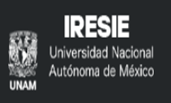The relationship between the quality of training services and job satisfaction of education servants
DOI:
https://doi.org/10.35699/2238-037X.2024.51540Keywords:
Quality in services, Training and development, Job satisfactionAbstract
The objective of this research was to evaluate the quality of training and qualification services offered by a public institution by comparing the expectations and experiences of the client, who is an administrative technician in education, and their relationship with satisfaction in the work environment and quality of life at work. The research is exploratory and descriptive in nature, and quantitative and qualitative methods were used. To evaluate the effectiveness of the training program at the Instituto Federal do Pará – Campus Avançado Vigia, the site of this research, the SERVQUAL model was used, which aims to measure the quality of the service based on the difference between the perceptions of the clients about the service provided and their expectations. It is a questionnaire composed of 22 questions that encompass 5 dimensions of quality, dimensions selected from bibliographical surveys, indicated as relevant for this study. The SERVQUAL model proved to be effective in evaluating the quality of the service and in identifying gaps that need to be addressed to improve the organization's performance. The relationship between perceived quality and satisfaction in the work environment was analyzed using the QWLQ-bref questionnaire, which assesses four domains of quality of work life (QWL). It consists of 20 questions, which makes the research faster. The results revealed a positive correlation between the dimensions of quality of the training service and the domains of QWL, corroborating the studies carried out and indicated in this research. The gaps between expectations and results related to the quality of the training service were also confirmed. As a suggestion for future research, it is suggested that the questionnaires be applied to other units of the federal public sphere with the aim of promoting generalization and reducing biases
References
ALI, Sadia Samar; BASU, Arati; WARE, Nilesh. Quality measurement of Indian commercial hospitals–using a SERVQUAL framework. Benchmarking: an international journal, v. 25, n. 3, p. 815-837, 2018. https://doi.org/10.1108/BIJ-05-2016-0060
AlOMARI, Firas. Measuring gaps in healthcare quality using SERVQUAL model: challenges and opportunities in developing countries. Measuring Business Excellence, v. 25, n. 4, p. 407-420, 2021. https://doi.org/10.1108/MBE-11-2019-0104
ALVES, Sabrina Bianca da Silva; RAIOL, Laura Cristina Barros; CASTRO, Hudson Augusto Silva de; MARTINS, Harley dos Santos. Análise da qualidade de vida de vigilantes atuantes numa instituição de ensino superior. Revista de Gestão e Avaliação Educacional, p. e73537-11, 2023. https://doi.org/10.5902/2318133873537
AMORIM, Tania Nobre Gonçalves Ferreira; DE BARROS SILVA, Ladjane. Treinamento no serviço público: uma abordagem com os servidores técnico-administrativos de universidade. Teoria e Prática em Administração (TPA), v. 2, n. 1, p. 1-28, 2012.
ARULDOSS, Alex; KOWALSKI, Kellyann Berube; PARAYITAM, Satyanarayana. The relationship between quality of work life and work-life-balance mediating role of job stress, job satisfaction and job commitment: evidence from India. Journal of Advances in Management Research, v. 18, n. 1, p. 36-62, 2021. https://doi.org/10.1108/JAMR-05-2020-0082
BALDAM, Roquemar de Lima; FIOROT, Guilherme Marques; SILVA, Rafael Moreira Grazia; PITANGA, Tullio Rocio; VIEIRA, Vitor Arçari. Atendendo à alta demanda de treinamento nas organizações e reduzindo os custos. RACE, Revista de Administração, Contabilidade e Economia, v. 17, n. 1, p. 129-150, 2018.
BALSAN, Laércio André Gassen; DIAS LOPES, Luis Felipe; ALVES, Juliano Nunes; VIZZOTTO, Fernanda Binotto; COSTA, Vânia Medianeira Flores. Impacto do treinamento, comprometimento e entrincheiramento organizacionais em servidores de uma universidade pública. Revista Gestão Universitária na América Latina-GUAL, v. 9, n. 1, p. 143-164, 2016. https://dx.doi.org/10.5007/1983-4535.2016v9n1p143
BINGWA, L.; NGIBE, M. The impact of academic training programmes in improving teaching and learning: A case of academic staff at a selected university of technology. South African Journal of Higher Education, v. 35, n. 2, p. 21-41, 2021. https://hdl.handle.net/10520/ejc-high-v35-n2-a3
BRASIL. Decreto nº 9.991, de 28 de agosto de 2019. Dispõe sobre a Política Nacional de Desenvolvimento de Pessoas da administração pública federal direta, autárquica e fundacional, e regulamenta dispositivos da Lei nº 8.112, de 11 de dezembro de 1990, quanto a licenças e afastamentos para ações de desenvolvimento. Brasília
CHEREMETA, M.; PEDROSO, B.; PILATTI, L. A.; KOVALESKI, J. L. Construção da versão abreviada do QWLQ-78: um instrumento de avaliação da qualidade de vida no trabalho. Revista Brasileira de Qualidade de vida, v. 3, n. 1, 2011. https://doi.org/10.3895/S2175-08582011000100001
COHEN, Jacob. Statistical power analysis. Current directions in psychological science, v. 1, n. 3, p. 98-101, 1992.
DE OLIVEIRA, Natália Mariana Tavares; FRAGATA, Juliane Pinheiro; FRAGATA, Fernanda Pinheiro. O plano anual de capacitação–PAC dos servidores técnico-administrativos em educação da Universidade Federal do Amazonas como ferramenta para promoção do desenvolvimento profissional: Um estudo realizado com os servidores do Campus de Parintins. Observatorio de la Economía Latinoamericana, n. 7, p. 10, 2019.
DE OLIVEIRA, Marcos Antonio; SOUZA, Francisco das Chagas Silva; DE OLIVEIRA, Veroneide Maria. Expansão e interiorização do Instituto Federal de Educação, Ciência e Tecnologia do Rio Grande do Norte no século XXI. Revista Contexto & Educação, [S. l.], v. 38, n. 120, p. e13542, 2023. https://doi.org/10.21527/2179-1309.2023.120.13545
DINÇER, Hasan; YÜKSEL, Serhat; MARTÍNEZ, Luis. Analysis of balanced scorecard based SERVQUAL criteria based on hesitant decision-making approaches. Computers & Industrial Engineering, v. 131, p. 1-12, 2019. https://doi.org/10.1016/j.cie.2019.03.026
FERREIRA NETO, Macário Neri; SANTOS, Annara Cristina Oliveira; TEIXEIRA, Milena Rodrigues Benevides; DE SOUZA, Lucas Lopes Ferreira. Antecedentes da satisfação no trabalho de colaboradores das micro e pequenas empresas. Gestão & Planejamento-G&P, v. 24, 2023. https://doi.org/10.53706/gep.v.24.7295
GALVAO, Katia Cristina Cabral Monteiro; MONTE-MOR, Danilo Soares; TARDIN, Neyla. O efeito do treinamento na percepção do desempenho individual: uma análise baseada nos treinamentos ofertados pelo Instituto Federal do Espírito Santo (IFES). Revista de Contabilidade e Organizações, v. 11, n. 29, p. 3-16, 2017. https://doi.org/10.11606/rco.v11i29.122140
GOULA, Aspasia; RIZOPOULOS, Theodoros; STAMOULI, Maria-Aggeliki; KELESI, Marta; KABA, Evridiki; SOULIS, Sotirios. Internal quality and job satisfaction in health care services. International Journal of Environmental Research and Public Health, v. 19, n. 3, p. 1496, 2022. https://doi.org/10.3390/ijerph19031496
GUAN, Xiaoyu; FRENKEL, Stephen. How perceptions of training impact employee performance: Evidence from two Chinese manufacturing firms. Personnel review, v. 48, n. 1, p. 163-183, 2019. https://doi.org/10.1108/PR-05-2017-0141
HENNING, Adriana Clarice; BRITTES, Letícia Ramalho. EMENDA CONSTITUCIONAL Nº 95/2016: AMEAÇAS E DESAFIOS AOS INSTITUTOS FEDERAIS. Revista Contexto & Educação, [S. l.], v. 36, n. 113, p. 373–391, 2021. https://doi.org/10.21527/2179-1309.2021.113.373-391
KAREEM, Mohanad Ali; HUSSEIN, Ibrahim Jaafar. The impact of human resource development on employee performance and organizational effectiveness. Management Dynamics in the Knowledge Economy, v. 7, n. 3, p. 307-322, 2019. https://doi.org/10.25019/mdke/7.3.02
LEE, Gregory John. Training match and mismatch as a driver of key employee behaviours. Human Resource Management Journal, v. 25, n. 4, p. 478-495, 2015. https://doi.org/10.1111/1748-8583.12069
LEITÃO, João; PEREIRA, Dina; GONÇALVES, Ângela. Quality of work life and organizational performance: Workers’ feelings of contributing, or not, to the organization’s productivity. International journal of environmental research and public health, v. 16, n. 20, p. 3803, 2019.
LIU, Yifan; BAO, Tiantian; ZHAO, Dan; SANG, Huiyun; FU, Benwei. Evaluation of student-perceived service quality in higher education for sustainable development: a fuzzy TODIM-ERA method. Sustainability, v. 14, n. 8, p. 4761, 2022. https://doi.org/10.3390/su14084761
LIZARELLI, Fabiane L.; OSIRO, Lauro; GANGA, Gilberto M. D.; MENDES, Glauco H. S.; PAZ, Guilherme R. Integration of SERVQUAL, Analytical Kano, and QFD using fuzzy approaches to support improvement decisions in an entrepreneurial education service. Applied Soft Computing, v. 112, p. 1-15, 2021. https://doi.org/10.1016/j.asoc.2021.107786
MACHADO, Paulo Roberto Silveira; PERITO, Bárbara Zandomenico; TREPTOW, Igor Ceratti; DRAGO, Henrique Faverzani. A qualidade de vida no trabalho como estratégia de gestão de pessoas: o caso de uma indústria gráfica de Santa Catarina. Sistemas & Gestão, v. 13, n. 4, p. 532-540, 2018. https://doi.org/10.20985/1980-5160.2018.v13n4.1451
MAGALHÃES, Elenice Maria de; OLIVEIRA, Adriel Rodrigues de; CUNHA, Nina Rosa da Silveira; LIMA, Afonso Augusto Teixeira de Freitas de Carvalho; CAMPOS, Daniela Cristina da Silveira. A política de treinamento dos servidores técnico-administrativos da Universidade Federal de Viçosa (UFV) na percepção dos treinados e dos dirigentes da instituição. Revista de Administração Pública, v. 44, p. 55-86, 2010. https://doi.org/10.1590/S0034-76122010000100004
MENDES, Isabel Amélia Costa; TREVIZAN, Maria Auxiliadora; CUNHA, Ana Maria Palermo da. Campus avançado como extensão universitária. Revista Brasileira de Enfermagem, v. 31, p. 32-38, 1978. https://doi.org/10.1590/0034-716719780001000005
MOREIRA, Sarah Tiburtino; FREITAS, Rodrigo Randow de. Treinamento de servidores públicos em universidades federais. Brazilian Journal of Production Engineering, v. 5, n. 1, p. 172-185, 2019.
OCAMPO, Lanndon; ALINSUB, Jovir; CASUL, Ruselle Anne; ENQUIG, Germellie; LUAR, Mitzi; PANUNCILLON, Noche; BONGO, Miriam; OCAMPO, Christine Omela. Public service quality evaluation with SERVQUAL and AHP-TOPSIS: A case of Philippine government agencies. Socio-Economic Planning Sciences, v. 68, p. 1-14, 2019. https://doi.org/10.1016/j.seps.2017.12.002
PARASURAMAN, A.; ZEITHAML, V. A.; BERRY, L. L. SERVQUAL: A Multiple-Item Scale for Measuring Consumer Perceptions of Service Quality. Journal of Retailing, V. 64, N. 1, p. 12-40,1988.
REIS JÚNIOR, Dálcio Roberto dos; PILATTI, Luiz Alberto; PEDROSO, Bruno. Qualidade de Vida no Trabalho: Construção e validação do questionário QWLQ-78. Revista Brasileira de Qualidade de Vida, v. 03, n. 02, p. 01-12, 2011. Doi: 10.3895/S2175-08582011000200001
ROWDEN, Robert W.; CONINE, Clyde T. The impact of workplace learning on job satisfaction in small US commercial banks. Journal of workplace Learning, v. 17, n. 4, p. 215-230, 2005. https://doi.org/10.1108/13665620510597176
RUPP, Deborah E; GANAPATHI, Jyoti; AGUILERA, Ruth V; WILLIAMS, Cynthia A. Employee reactions to corporate social responsibility: an organizational justice framework. Journal of Organizational Behavior: The International Journal of Industrial, Occupational and Organizational Psychology and Behavior, vol. 27, n. 4, p. 537-543, 2006. https://doi.org/10.1002/job.380
SAHNI, Jolly. Role of quality of work life in determining employee engagement and organizational commitment in telecom industry. International Journal for Quality Research, v. 13, n. 2, p. 285, 2019. https://doi.org/10. 24874/IJQR13.02-03
SANIL, S K; NAIR, Vinith Kumar; RAMANATHAN, Hareesh N. Cognitive ergonomics and employee well-being in financial companies. Journal of Strategic Human Resource Management, vol. 2, no. 3, p. 48–55, 2013.
SESEN, Harun; ERTAN, Senay Sahil. The effect of the employee perceived training on job satisfaction: the mediating role of workplace stress. European Journal of Training and Development, v. 46, n. 9, p. 953-973, 2022. https://doi.org/10.1108/EJTD-01-2021-0014
SHIU, Yung-Ming; YU, Tsu-Wei. Internal marketing, organisational culture, job satisfaction, and organisational performance in non-life insurance. The Service Industries Journal, v. 30, n. 6, p. 793-809, 2010. https://doi.org/10.1080/02642060701849840
SIRGY, M. Joseph; EFRATY, David; SIEGEL, Phillip; LEE, Dong Jin. A new measure of quality of work life (QWL) based on need satisfaction and spillover theories. Social Indicators Research, vol. 55, no. 3, p. 241–302, 2001. https://doi.org/10.1023/A:1010986923468
SOUZA, Kellcia Rezende; KERBAUY, Maria Teresa Miceli. Abordagem quanti-qualitativa: superação da dicotomia quantitativa-qualitativa na pesquisa em educação. Educação e Filosofia, Uberlândia, v. 31, n. 61, p. 21–44, 2017. DOI: 10.14393/REVEDFIL.issn.0102-6801.v31n61a2017-p21a44.
TAVAKOL, M.; DENNICK, R. Making sense of Cronbach's alpha. Int J Med Educ, v. 2, p. 53-55, 2011. https://doi: 10.5116/ijme.4dfb.8dfd.
TESHNIZI, Saeed Hosseini; AGHAMOLAEI, Teamur; KAHNOUJI, Kobra; TESHNIZI, Seyyed Mehrdad Hosseini; GHANI, Jalil. Assessing quality of health services with the SERVQUAL model in Iran. A systematic review and meta-analysis. International Journal for Quality in Health Care, v. 30, n. 2, p. 82-89, 2018. https://doi.org/10.1093/intqhc/mzx200
WALTON, R. E. Criteria for Quality of Working Life. In Davis, L.E., Cherns, A.B. and Associates (Eds.) The Quality of Working Life, The Free Press, New York, NY, 1: 91-104, 1975.
Downloads
Published
Issue
Section
License
Copyright (c) 2024 Trabalho & Educação

This work is licensed under a Creative Commons Attribution 4.0 International License.
Os autores têm autorização para assumir contratos adicionais separadamente, para distribuição não-exclusiva da versão do trabalho publicada nesta revista (ex.: publicar em repositório institucional ou como capítulo de livro), com reconhecimento de autoria e publicação inicial nesta revista.












